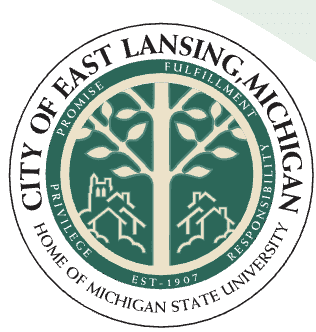 LANSING, MI — Low- and moderate-income Michigan families can put hundreds or even thousands of dollars back into their household budgets by making sure they use free tax-filing help to take advantage of all available credits and deductions.
LANSING, MI — Low- and moderate-income Michigan families can put hundreds or even thousands of dollars back into their household budgets by making sure they use free tax-filing help to take advantage of all available credits and deductions.Key among credits for lower-income working families this year are the federal and state Earned Income Tax Credit. The state credit doubled this year and both state and federal credits increased for bigger families – those with three or more children.
Some examples of the earned income credits available are:
o A single mom with two kids earning $20,000 qualifies for about $6,000 in state and federal credits.
o A family of five (three children) earning $30,000 qualifies for about $4,600.
o A single worker making $10,000 a year qualifies for just over $300 in credits.
“Every dollar counts in today’s tough economy,” said Sharon Parks, president & CEO of the Michigan League for Human Services, which advocates for low-income families. “Many families may not realize they are eligible for a broad range of tax breaks and refunds, and that they can get free help in filing for them.”
The earned income credits are available based on income to single or married people who worked at some point in 2009, self-employed workers, cash assistance recipients who had income from a job, and legal immigrants. The credits are similar to tax refunds, but they can be claimed even if they are larger than taxes owed by a taxpayer.
The Michigan Statewide Earned Income Tax Credit Coalition urges taxpayers to use free tax filing help and avoid paying big fees for “refund anticipation loans (RALs).”
For most tax filers, filling out a return should be easy and no cost. Anyone can file for free online at I-CAN! E-file (www.icanefile.org) and low-income earners can qualify for free tax preparation at Volunteer Income Tax Assistance (VITA) sites.
To find free tax-filing help, call 2-1-1 (if no answer, call 1-800-552-1183) or visit www.michiganEIC.org.
Overall, with the availability of free tax preparation services and the speediness of IRS returns, there is little to no reason for anyone to have to use a RAL.
Those filers who do use RALs should know that they have guaranteed rights in making the transaction: loan issuers must disclose all information about the rates and hidden fees of the loan and recipients have the ability to rescind the loan within 24 hours of its issuance.
If you or someone you know was issued a RAL and not given this information, please contact Ross Yednock, Director of the Michigan Asset Building Policy Project at yednock@cedam.info or the Michigan Office of Financial and Insurance Regulation (OFIR) at 1-877-999-6442.
In Detroit earlier this month, the Accounting Aid Society, one of the VITA sites, held a press conference to promote free tax assistance. Two participants said they were stunned to find they qualified for large EITC refunds and were able to get that help for free.
“I had no idea that I would qualify for the EITC,” said unemployed Detroit worker Stephanie Barnett. “Now I can get some bills paid and get that headache off of me.”
Sylvia McClinton is the single mother of one child. She works three part-time jobs working with the homeless and as a caregiver to the elderly.
“The biggest surprise was that I did not expect to see a large refund regarding the EITC because I’m a single mother but I only have one child,” she said.
Parks of the Michigan League for Human Services urged workers to check to see if they are eligible for the EITC.
“This is a huge help for working families in Michigan,” Parks said. “It’s essential that workers check to see if they qualify.”
The Michigan League for Human Services, www.milhs.org, has a packet of information called Money Back in Michigan that details nine credits and deductions.
Among credits detailed is the federal Child Tax Credit is available to families earning as little as $3,000, as opposed to $8,500 in 2008. The expansion of the credit is due to the American Recovery and Reinvestment Act (President Obama’s stimulus plan).
Another new credit is the American Opportunity Tax Credit, making postsecondary education more affordable. This credit is worth up to $2,500 and is refundable up to $1,000.
Another new credit under the Recovery Act is the federal Making Work Pay Credit of $400 for individuals and $800 for married couples filing jointly.
Other credits available are the federal Child and Dependent Care Credit, the state Child Deduction, the state Home Heating Tax Credit and the state Homestead Property Tax Credit.
It’s important to know that the Michigan Home Heating Tax Credit is available to income-eligible renters, even to those who have heat included in the rent. And the Homestead Property Tax Credit, up to $1,200, can be used to reduce the amount of taxes owed or issued as a refund. It is also available to renters.
This was printed in the March 28, 2010 – April 10, 2010 edition.



